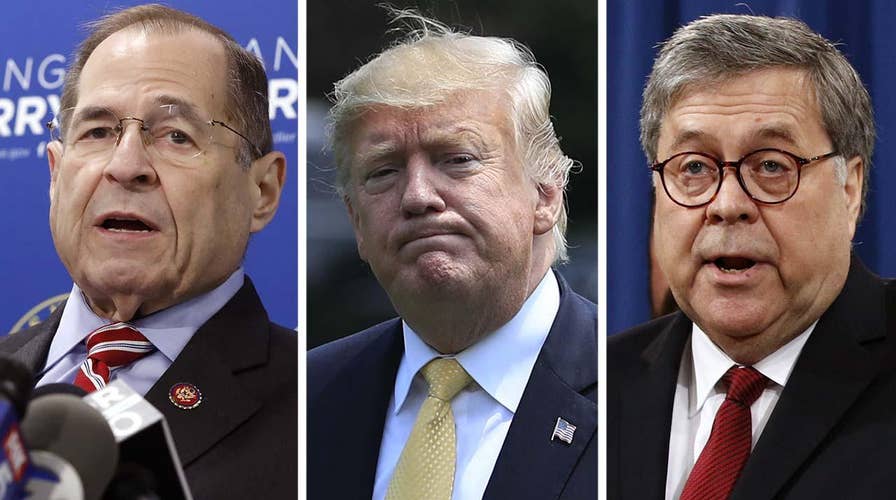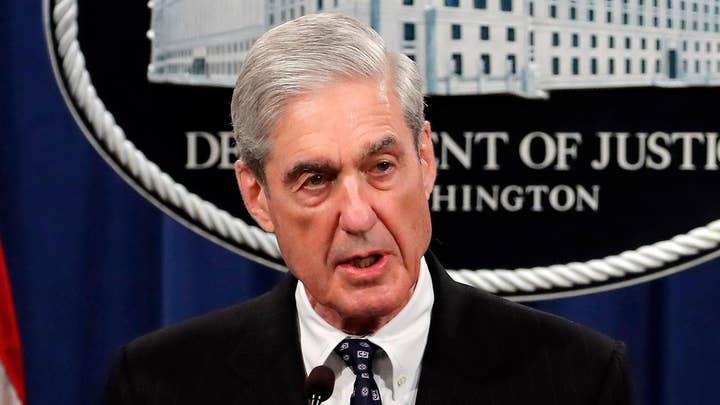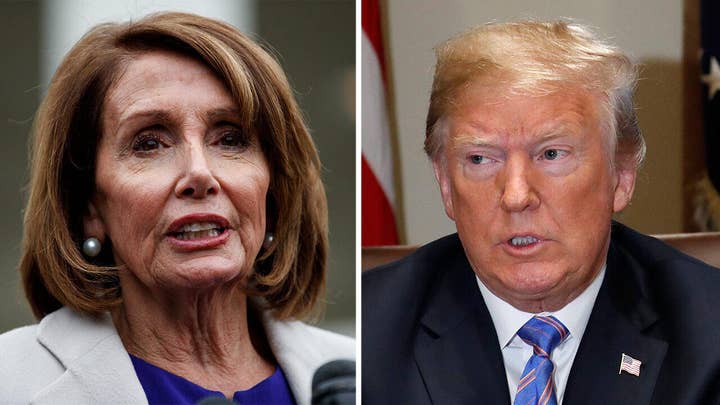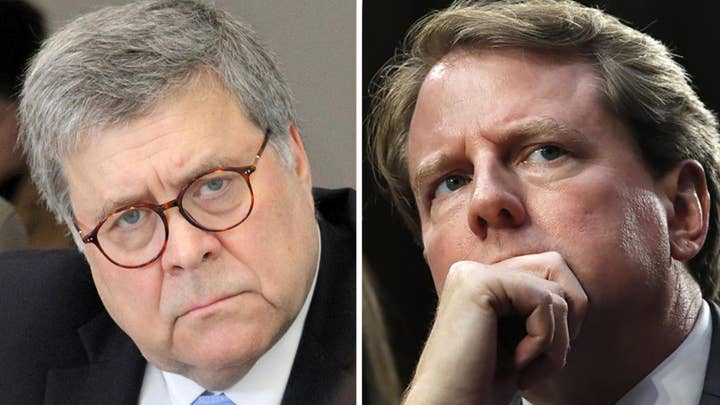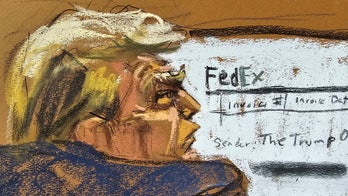House Democrats are gearing up for a new wave of hearings and congressional actions next week in connection with the Russia investigation -- coming as lawmakers and 2020 presidential candidates increase pressure on party leadership to launch impeachment proceedings against President Trump.
House Intelligence Committee Chairman Adam Schiff, D-Calif., announced Friday that his panel would hold an open hearing on June 12 focused on the “counterintelligence implications” of former Special Counsel Robert Mueller’s Russia report, featuring testimony from two former FBI national security officials.
DEMS UNVEIL CONTEMPT RESOLUTION FOR BARR, MCGAHN OVER SUBPOENA SNUB
“Our Committee’s goal will be to explain to the American people the serious counterintelligence concerns raised by the Mueller Report, examine the depth and breadth of the unethical and unpatriotic conduct it describes, and produce prescriptive remedies to ensure that this never happens again,” Schiff said in a statement. “That is a tall task, but it begins with a detailed focus on the facts laid out in the Special Counsel’s report.”
Schiff said the hearing is the second in the “series” to collect testimony from “fact witnesses, national security experts” and others connected to the Mueller investigation. The first was focused on the Kremlin’s alleged use of oligarchs and money to influence foreign actors. Schiff also said the panel plans to hold another hearing to explore facts about U.S. election “intrusions.”
Schiff’s planned hearing is just one of several on the docket for next week.
House Judiciary Committee Chairman Jerrold Nadler, D-N.Y., announced a hearing slated for June 10 on the Mueller report, inviting star-witness John Dean to testify. Dean was the former White House counsel to former President Richard Nixon and was a key figure in the Watergate scandal.
Nadler’s hearing, too, will be one of a series “focused on the alleged crimes and other misconduct” laid out in Mueller’s report.
“We have learned so much from even the redacted version of Special Counsel Robert Mueller’s report,” Nadler said in a statement. “Russia attacked our elections to help President Trump win, Trump and his campaign welcomed this help and the President then tried to obstruct the investigation into the attack. Mueller confirmed these revelations and has now left Congress to pick up where he left off.”
The scheduled hearings come after Mueller made a rare public appearance last week to mark the conclusion of his investigation and the closing of his office. He maintained that there was “not sufficient evidence to charge a conspiracy” with regard to whether members of the Trump campaign coordinated with the Russian government during the 2016 presidential election.
HOUSE JUDICIARY COMMITTEE TO HOLD MUELLER REPORT HEARING WITH WATERGATE FIGURE JOHN DEAN
But Mueller left open the question of whether the president obstructed justice.
“If we had had confidence that the president clearly did not commit a crime, we would have said that,” Mueller said. “We did not determine whether the president did commit a crime.”
Mueller explained longstanding Justice Department policy, which states a sitting president cannot be charged with a crime, and thus said “charging the president was not an option we could consider.”
Mueller added that “it would be unfair to accuse someone of a crime when there could be no court resolution of the charge.” Mueller said that while the Office of Legal Counsel (OLC) opinion blocks a president from indictment while in office, “the Constitution requires a process other than the criminal justice system to formally accuse the president of wrongdoing.”
Many congressional Democrats took Mueller’s comment as a green light to ramp up talks on impeachment proceedings against the president -- despite House Speaker Nancy Pelosi’s reluctance.
But while Pelosi has continued to push back on deputies urging impeachment, she caused a new controversy this week by saying in a closed-door meeting that she wants to see Trump in "prison" once he leaves office.
Politico reported that Pelosi told top Democratic committee chairmen: “I don’t want to see him impeached, I want to see him in prison.”
Several House Democratic sources told Fox News that Pelosi has said similar things about Trump in past caucus meetings, such as “we should go down there and arrest the man.” The sources said Pelosi is trying to put any action off until after the election, making the case that Democrats should defeat Trump in 2020 -- and then seek prosecution after he leaves office.
Trump has since blasted Pelosi as a “nasty, vindictive, horrible person,” and called her remarks “disgusting.”
“Nervous Nancy is a disgrace to herself and her family for having made such a disgusting statement, especially since I was with foreign leaders overseas. There is no evidence for such a thing to have been said,” Trump tweeted Friday.
Meanwhile, the House is preparing to vote on whether to hold Attorney General Bill Barr and former White House Counsel Don McGahn in contempt of Congress for not complying with recent congressional subpoenas demanding information and testimony related to Mueller’s investigation.
Nadler’s committee last month voted to hold Barr in contempt for defying the subpoena for an unredacted version of the Mueller report and its underlying evidence.
As for McGahn, the White House has repeatedly instructed him not to testify, saying he is legally immune from being compelled to testify about privileged discussions in the course of his official duties. Democrats have responded that McGahn waived that privilege by agreeing to speak to Mueller.
A contempt vote would be historic, but not unprecedented. In 2012, the GOP-controlled House voted to hold then-Attorney General Eric Holder in contempt for failing to comply with investigations into the Obama administration's failed gun-running sting operation known as "Fast and Furious." Holder became the first-ever sitting Cabinet member to be held in contempt of Congress in that manner.
Fox News’ Samuel Chamberlain and Gregg Re contributed to this report.
